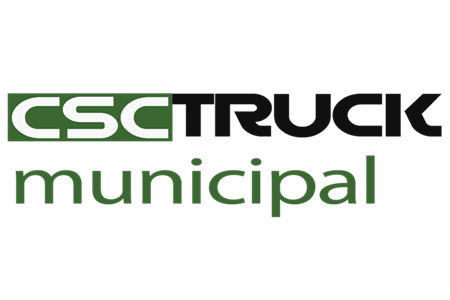Introduction
Sweeper trucks play a vital role in maintaining cleanliness and hygiene in urban areas. They efficiently remove debris, leaves, and other waste from streets, parking lots, and public spaces. However, while these vehicles contribute to maintaining a clean environment, it is essential to examine their environmental impact. This article aims to delve into the various aspects of the environmental impact of sweeper trucks, including their emissions, energy consumption, waste management, and potential solutions for mitigating their negative effects.
Emissions and Air Pollution
Sweeper trucks are typically equipped with diesel engines, which emit pollutants such as nitrogen oxides (NOx), particulate matter (PM), and carbon dioxide (CO2). These emissions contribute to air pollution, which poses significant health risks to both humans and the environment. To minimize the environmental impact, it is crucial to explore alternative fuels and technologies for sweeper trucks, such as electric or hybrid engines, which produce fewer emissions or are emission-free.
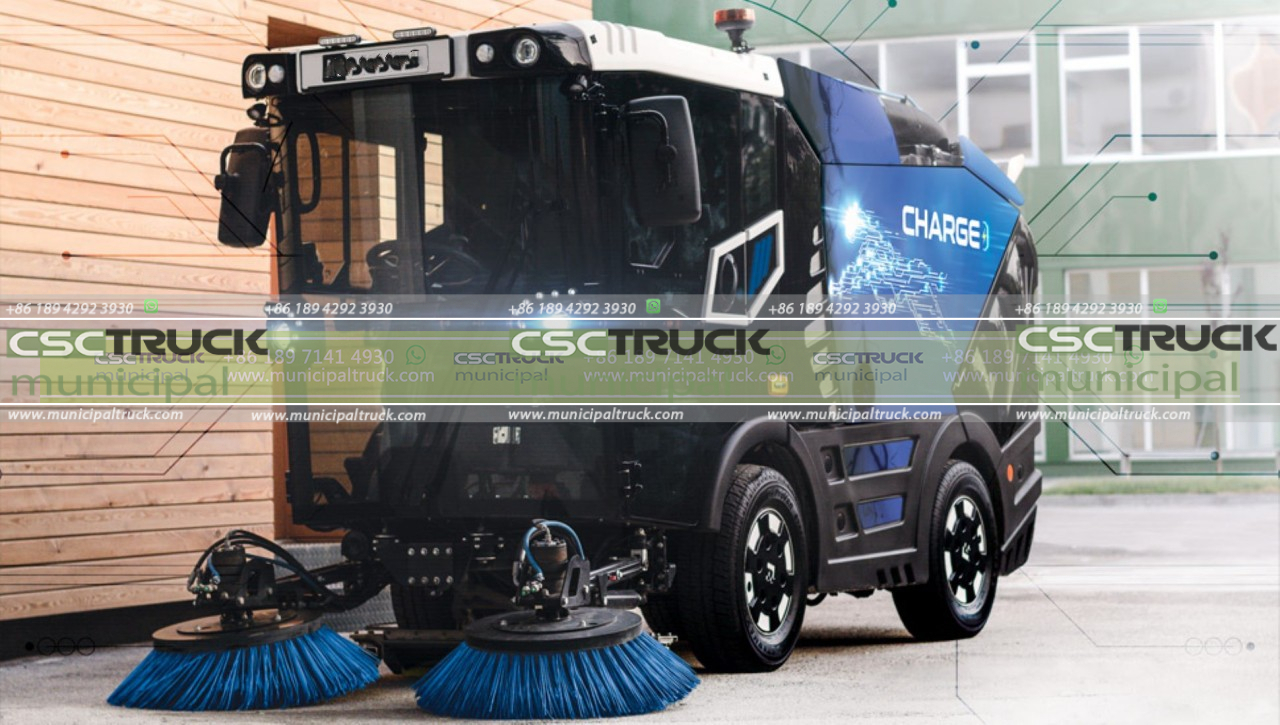
Energy Consumption
Sweeper trucks consume a considerable amount of energy during their operation. Traditional models rely on fossil fuels, further contributing to greenhouse gas emissions and climate change. Energy-efficient technologies, including regenerative braking systems and advanced engine designs, can help reduce fuel consumption and promote sustainability. Moreover, incorporating renewable energy sources, such as solar panels, can power auxiliary systems and minimize the overall energy demand of sweeper trucks.
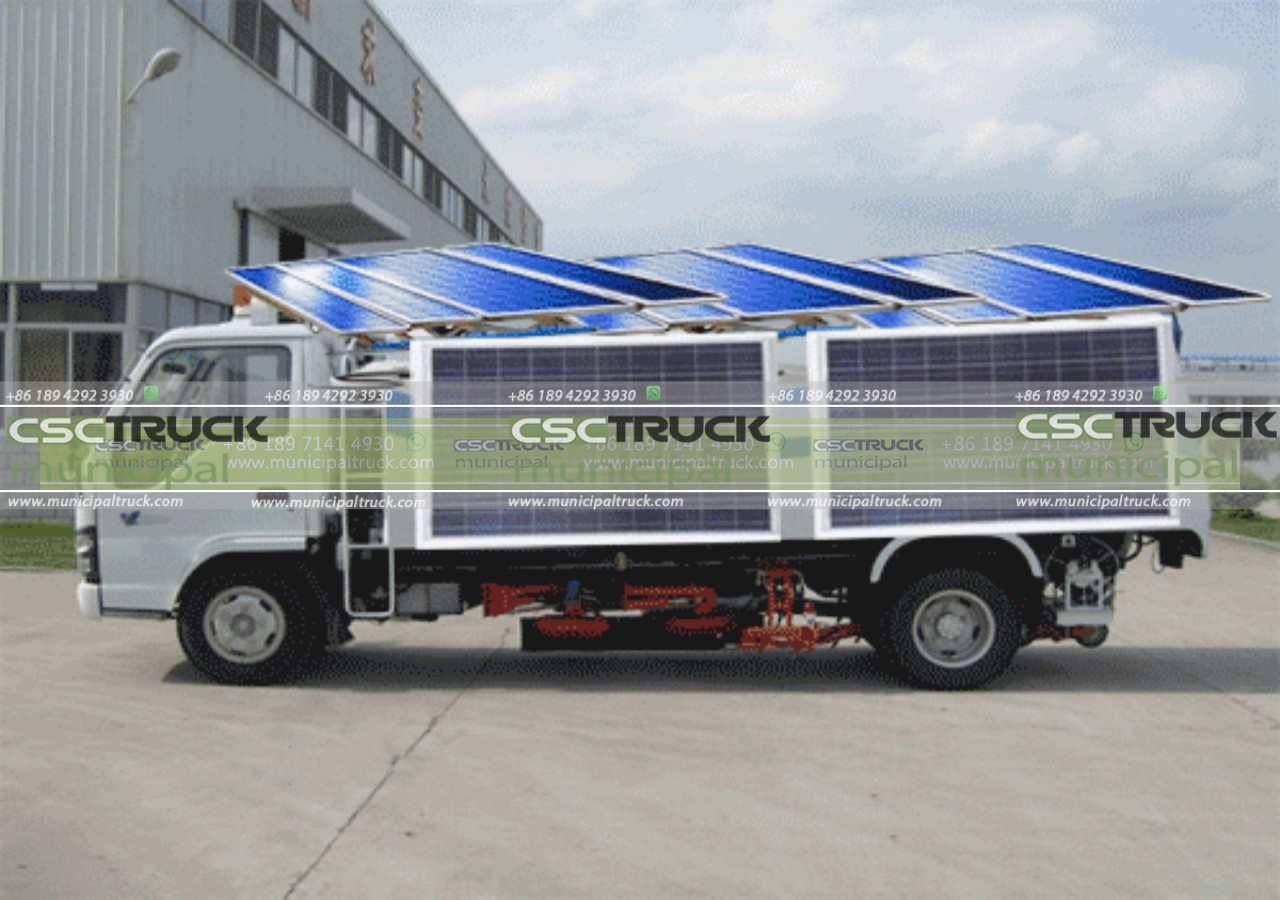
Waste Management
While sweeper trucks are designed to clean streets and public areas, they also generate waste themselves. The waste collected by these vehicles consists of various materials, including leaves, litter, and other debris. Proper waste management is crucial to ensure that the collected waste is disposed of responsibly and does not end up in landfills. Recycling and composting programs can be implemented to handle the organic waste, while recyclable materials should be separated for appropriate processing and reuse.
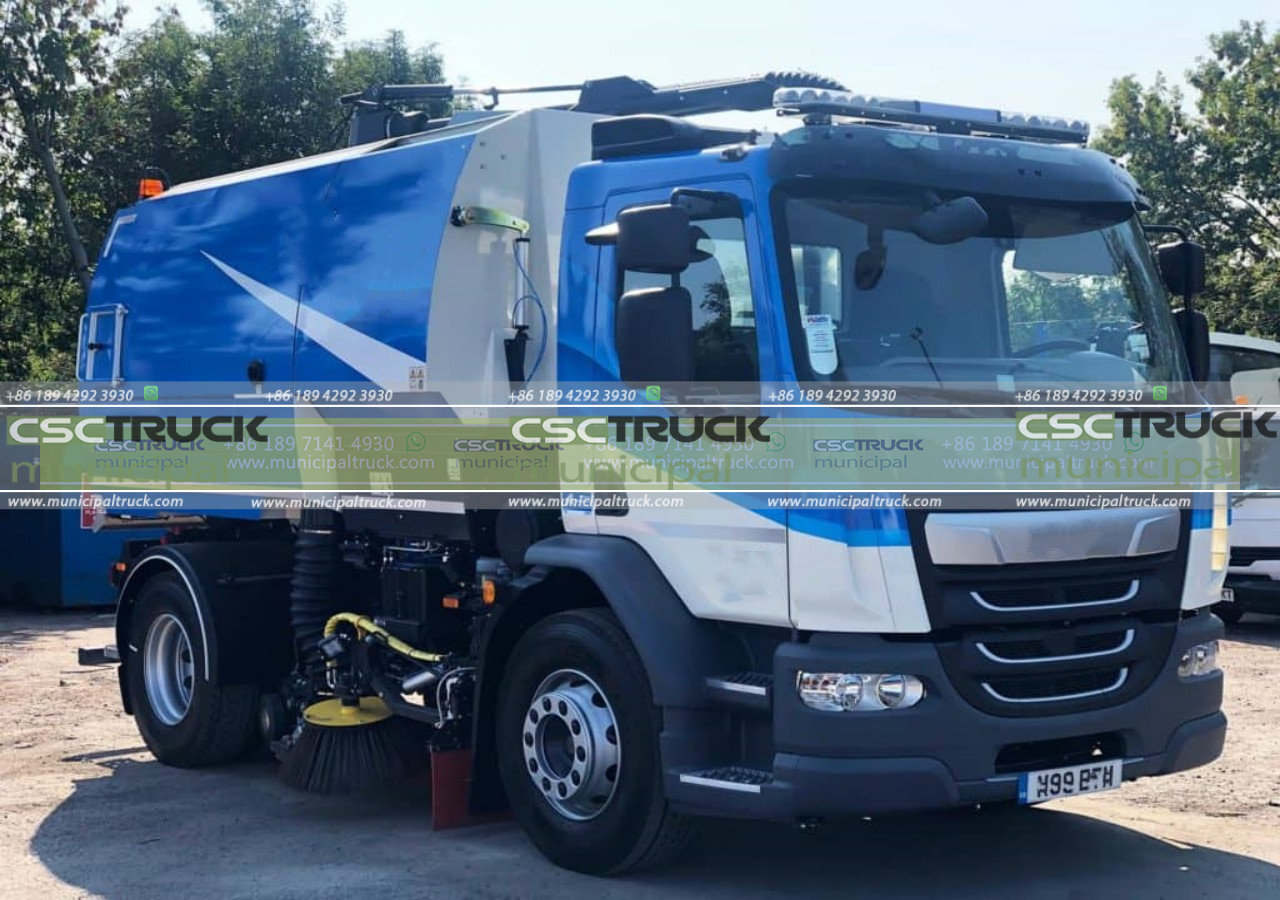
Noise Pollution
In addition to emissions and waste management, sweeper trucks can also contribute to noise pollution in urban areas. The loud noise produced by these vehicles during their operations can disrupt the tranquility of neighborhoods and impact the well-being of residents. Manufacturers can focus on designing quieter sweeper trucks by employing noise-reducing technologies and implementing strict noise standards. Additionally, scheduling sweeping activities during less sensitive hours can help minimize the impact of noise pollution on communities.

Mitigation Strategies
To address the environmental impact of sweeper trucks, 5 strategies can be employed:
a. Transition to cleaner fuels: Encouraging the adoption of alternative fuels, such as biodiesel or compressed natural gas (CNG), can reduce emissions and improve air quality significantly.
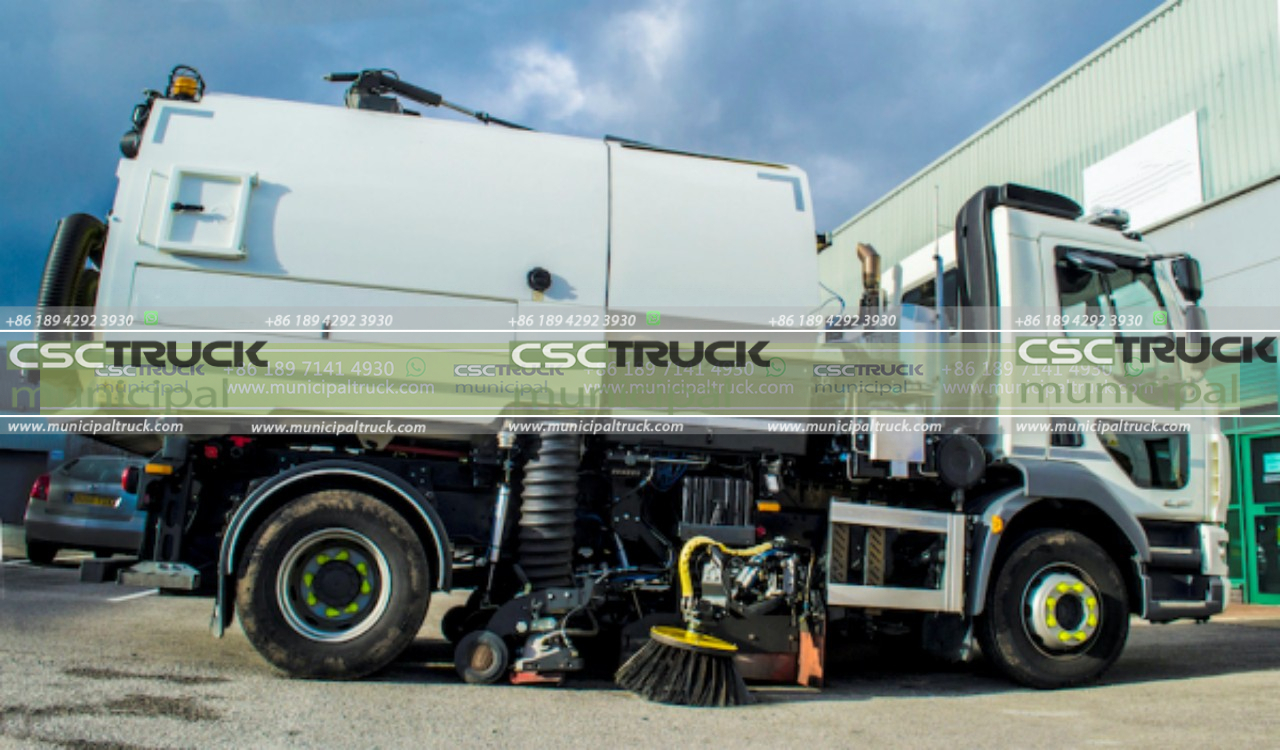 b. Electrification: Promoting the use of electric or hybrid sweeper trucks can eliminate direct emissions and lower the overall carbon footprint of these vehicles.
b. Electrification: Promoting the use of electric or hybrid sweeper trucks can eliminate direct emissions and lower the overall carbon footprint of these vehicles.
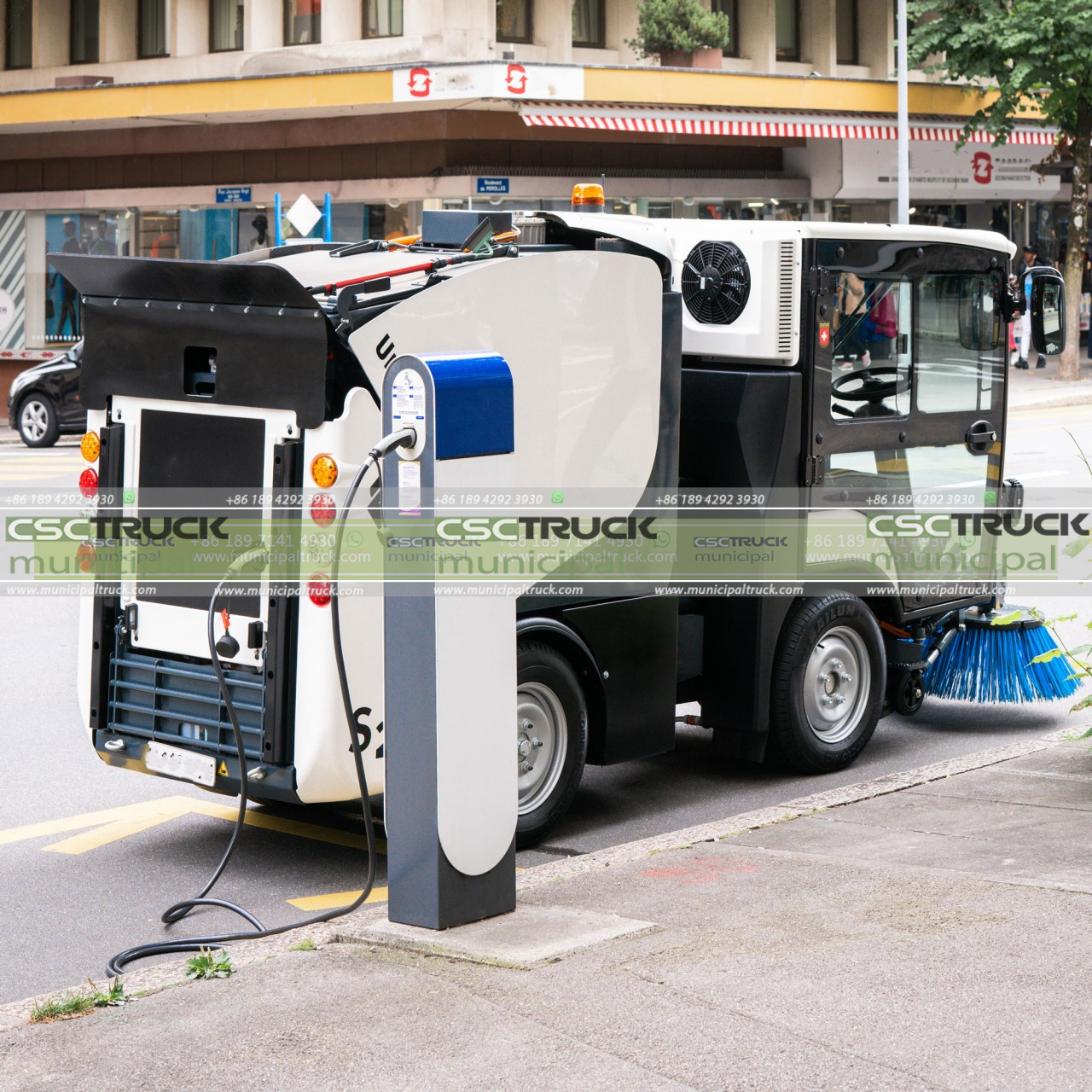 c. Advanced technology: Research and development efforts should focus on enhancing the efficiency of sweeper trucks by implementing innovative technologies like regenerative braking, improved aerodynamics, and lightweight materials.
c. Advanced technology: Research and development efforts should focus on enhancing the efficiency of sweeper trucks by implementing innovative technologies like regenerative braking, improved aerodynamics, and lightweight materials.
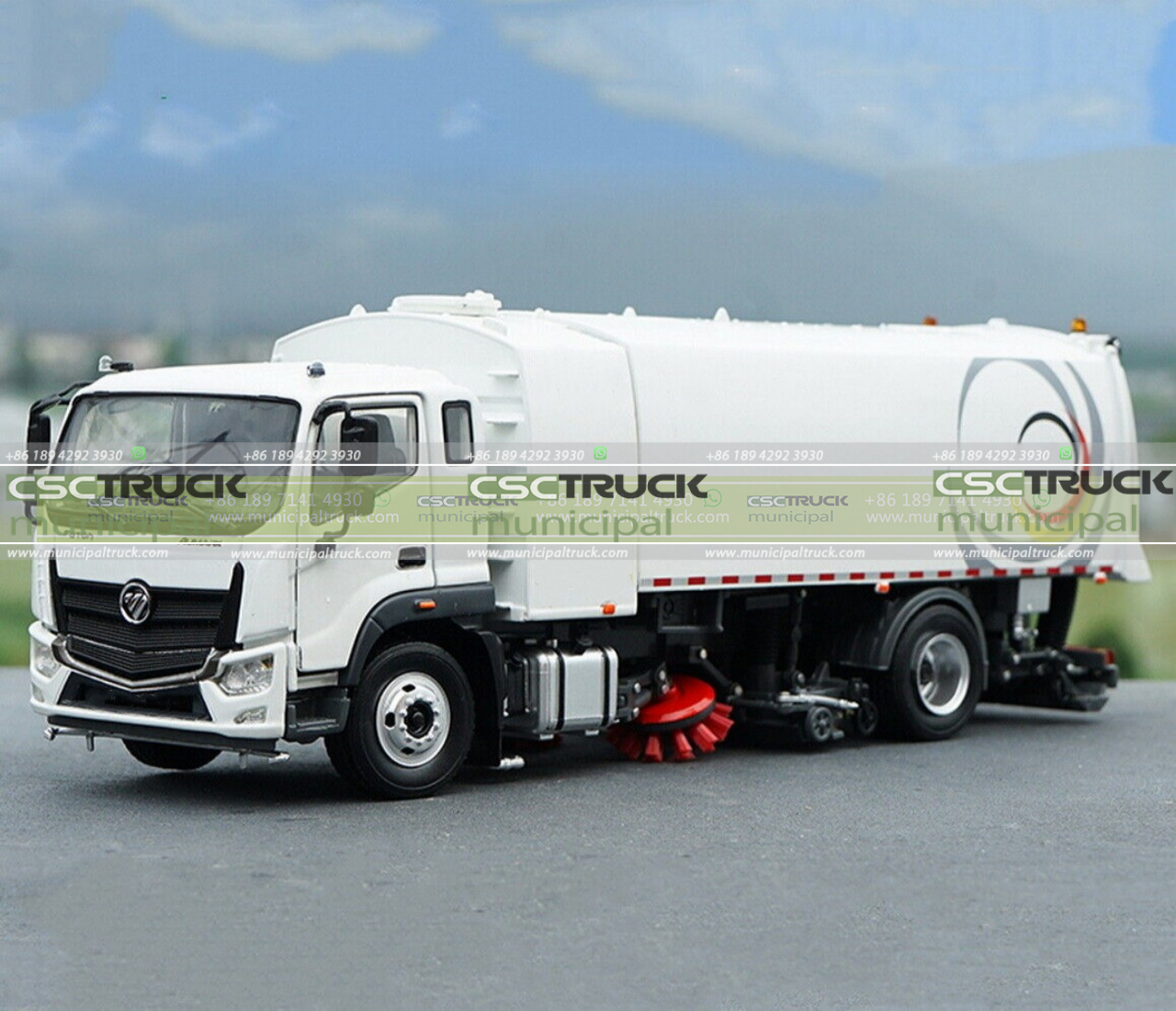 d. Sustainable waste management: Municipalities should prioritize waste separation, recycling, and composting programs to reduce the environmental impact of sweeper truck waste and promote a circular economy.
d. Sustainable waste management: Municipalities should prioritize waste separation, recycling, and composting programs to reduce the environmental impact of sweeper truck waste and promote a circular economy.
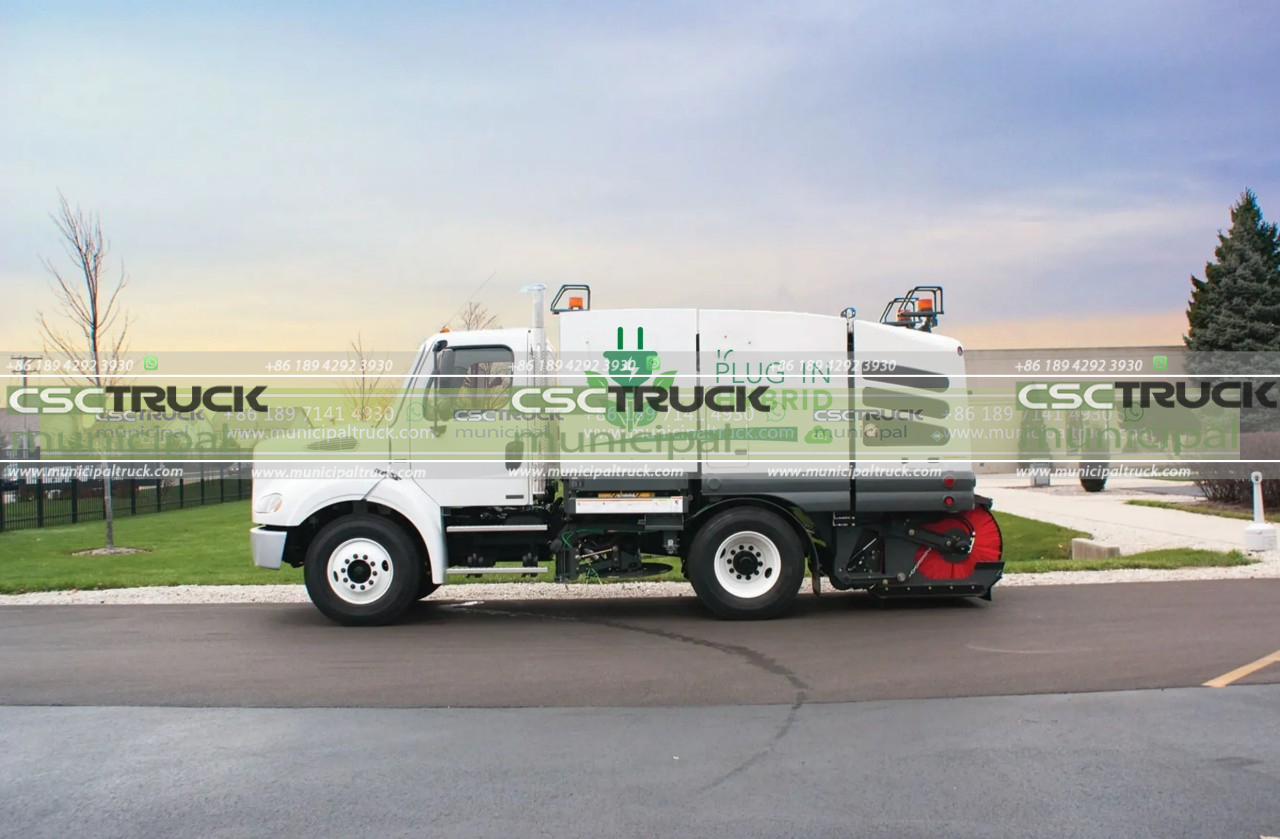 e. Noise reduction measures: Manufacturers can invest in noise reduction technologies, such as sound insulation and quieter engine designs, to minimize noise pollution caused by sweeper trucks.
e. Noise reduction measures: Manufacturers can invest in noise reduction technologies, such as sound insulation and quieter engine designs, to minimize noise pollution caused by sweeper trucks.
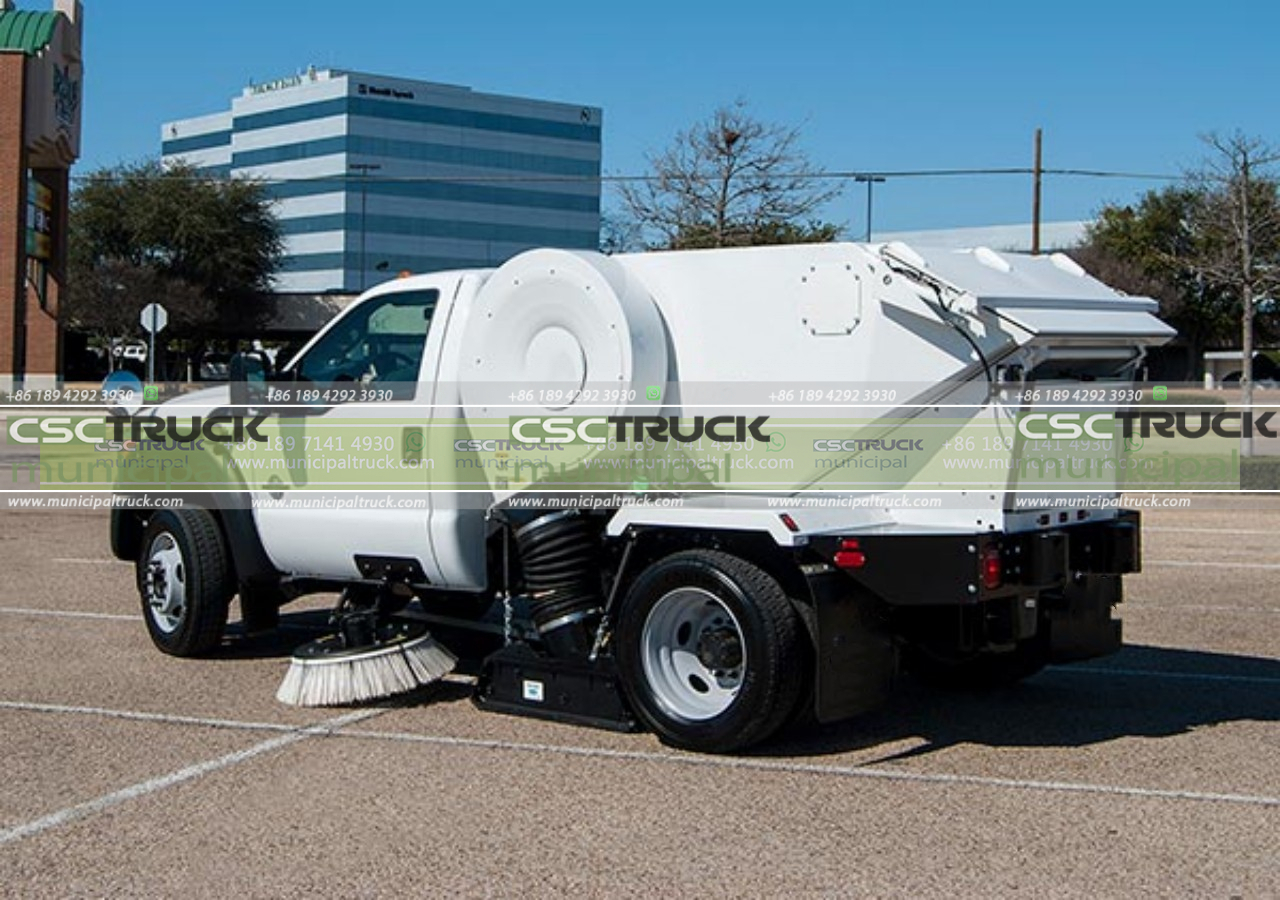 Conclusion
Conclusion
Sweeper trucks play a crucial role in maintaining cleanliness and hygiene in urban areas, but their environmental impact cannot be ignored. From emissions and energy consumption to waste management and noise pollution, various factors contribute to their overall effect on the environment. By transitioning to cleaner fuels, embracing electrification, incorporating advanced technology, and implementing sustainable waste management practices, the negative environmental impact of sweeper trucks can be mitigated. Manufacturers, policymakers, and municipalities need to collaborate in implementing these strategies to ensure a more sustainable future for sweeper truck operations.
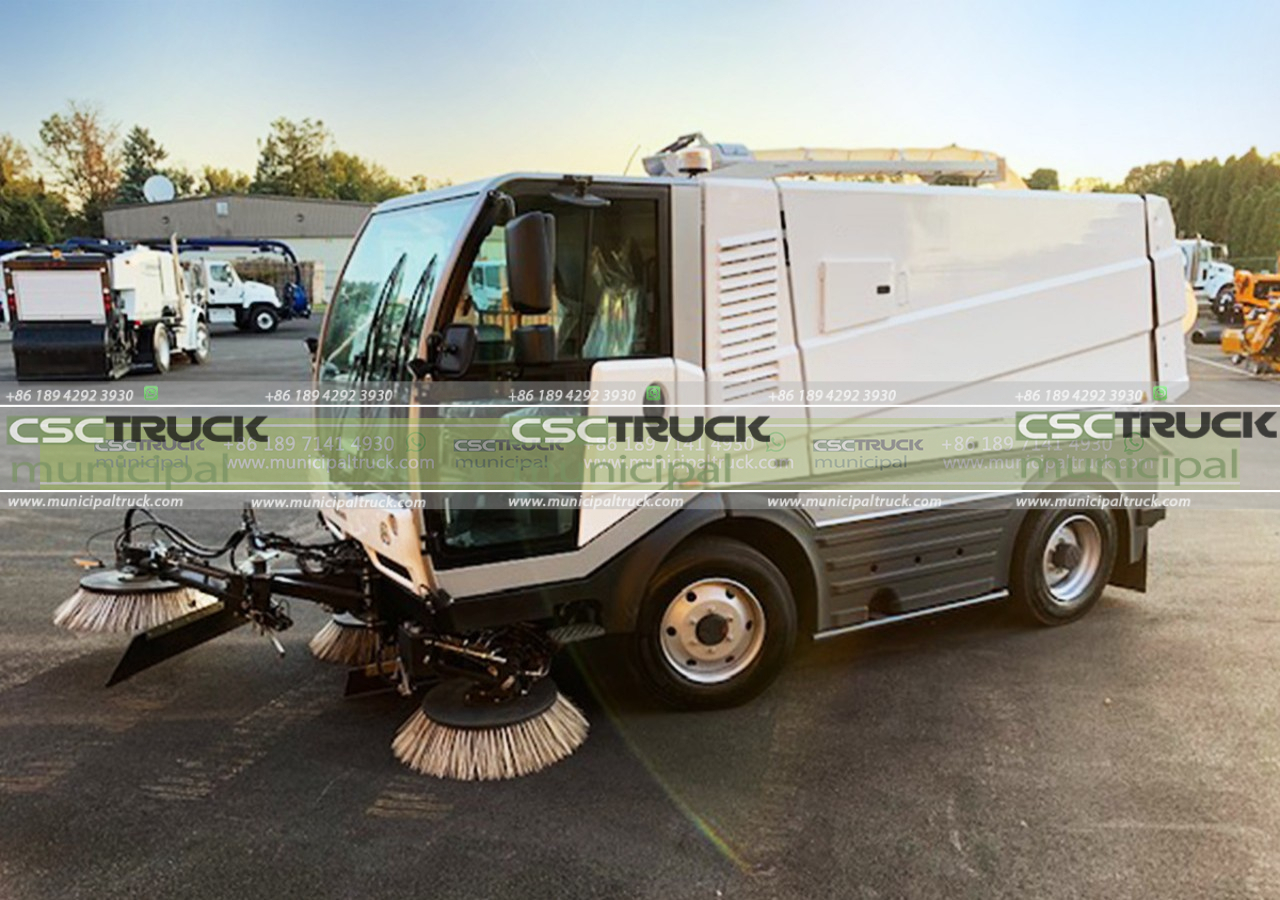 Furthermore, public awareness and education are key to fostering collective responsibility for the environment. By promoting eco-friendly practices, such as reducing littering and supporting local recycling initiatives, communities can contribute to minimizing the environmental impact of sweeper trucks actively and other waste management systems.
Furthermore, public awareness and education are key to fostering collective responsibility for the environment. By promoting eco-friendly practices, such as reducing littering and supporting local recycling initiatives, communities can contribute to minimizing the environmental impact of sweeper trucks actively and other waste management systems.
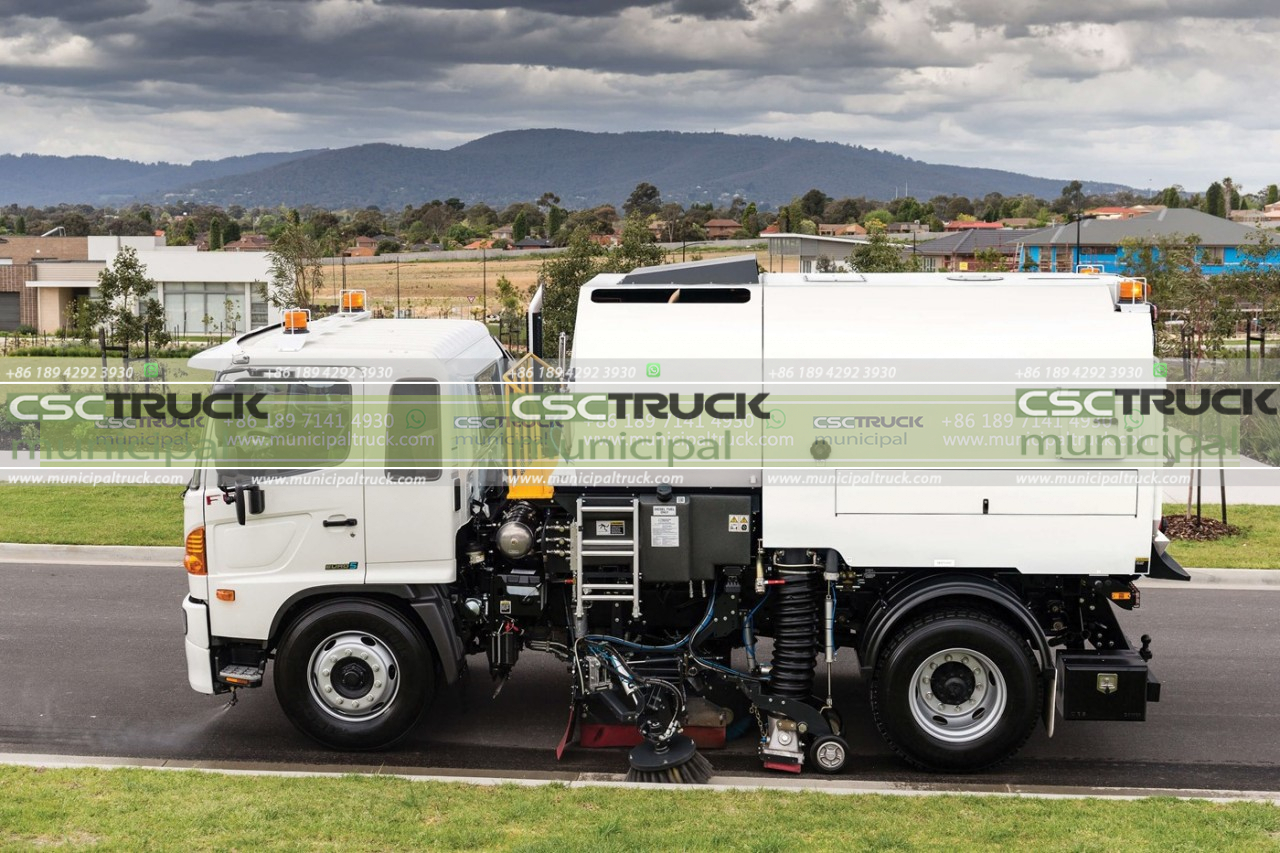
It is worth mentioning that the development of environmentally friendly sweeper trucks should not only focus on reducing negative impacts but also explore opportunities for positive environmental contributions. For instance, exploring the use of sweeper truck waste for energy generation through waste-to-energy processes or developing innovative recycling technologies that can transform waste materials into valuable resources.
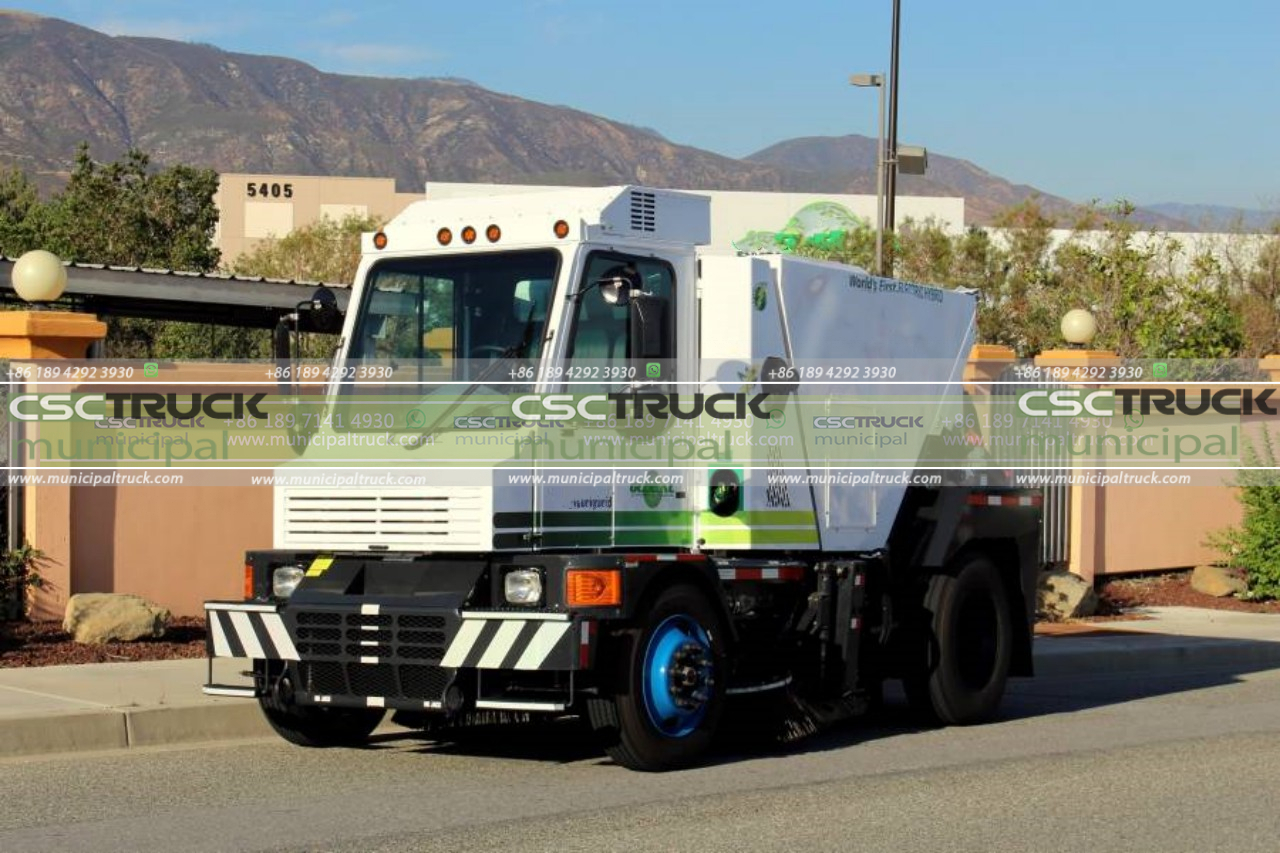 Additionally, collaboration among stakeholders is crucial. Sweeper truck manufacturers, environmental organizations, government agencies, and communities should work together to establish comprehensive guidelines and regulations that promote sustainable practices throughout the lifecycle of sweeper trucks. This includes the design, manufacturing, operation, maintenance, and disposal phases.
Additionally, collaboration among stakeholders is crucial. Sweeper truck manufacturers, environmental organizations, government agencies, and communities should work together to establish comprehensive guidelines and regulations that promote sustainable practices throughout the lifecycle of sweeper trucks. This includes the design, manufacturing, operation, maintenance, and disposal phases.
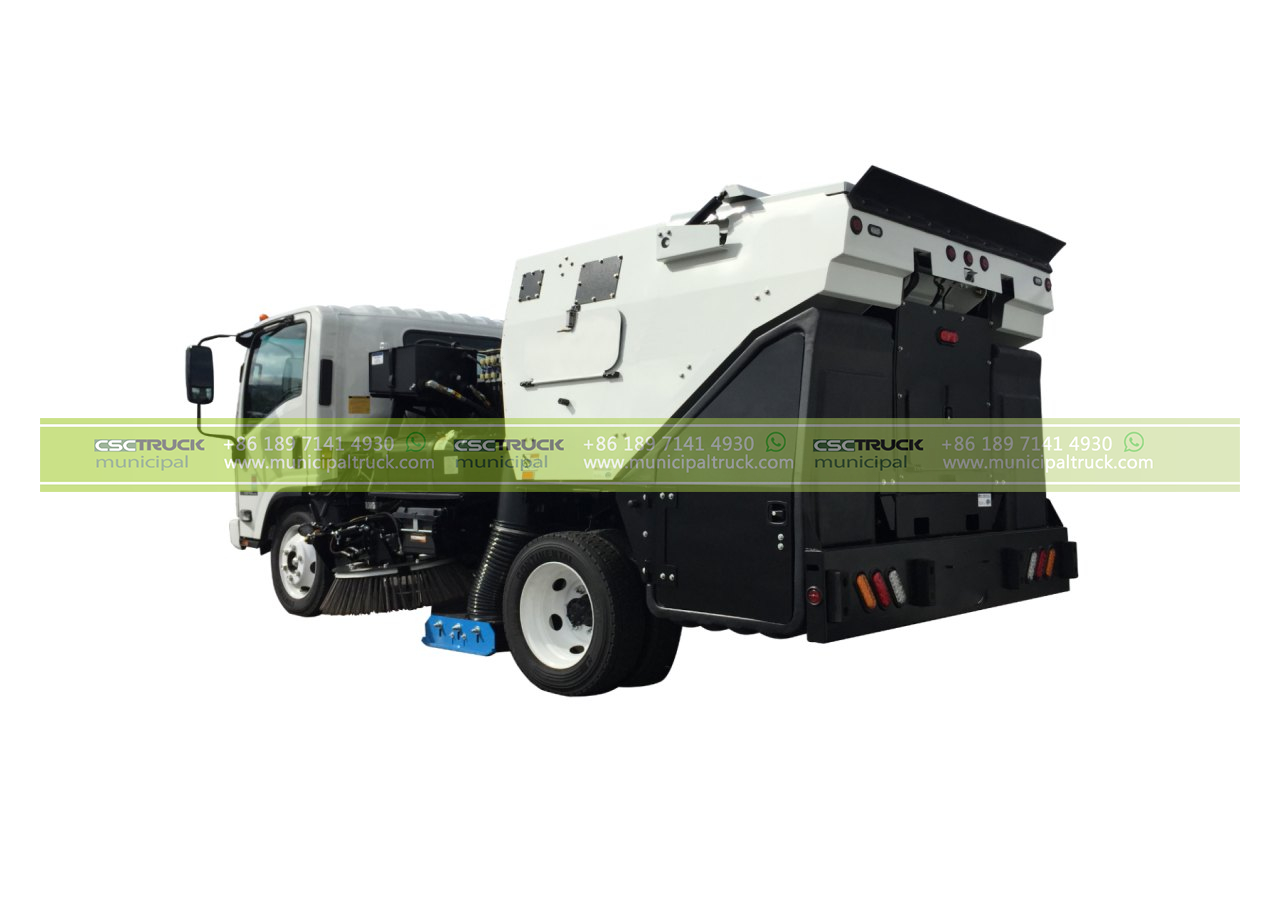 Investing in research and development is also essential to drive innovation and discover new technologies that further reduce the environmental impact of sweeper trucks. Governments and organizations should allocate resources to support research initiatives aimed at developing cleaner and more efficient technologies, as well as improving waste management processes.
Investing in research and development is also essential to drive innovation and discover new technologies that further reduce the environmental impact of sweeper trucks. Governments and organizations should allocate resources to support research initiatives aimed at developing cleaner and more efficient technologies, as well as improving waste management processes.
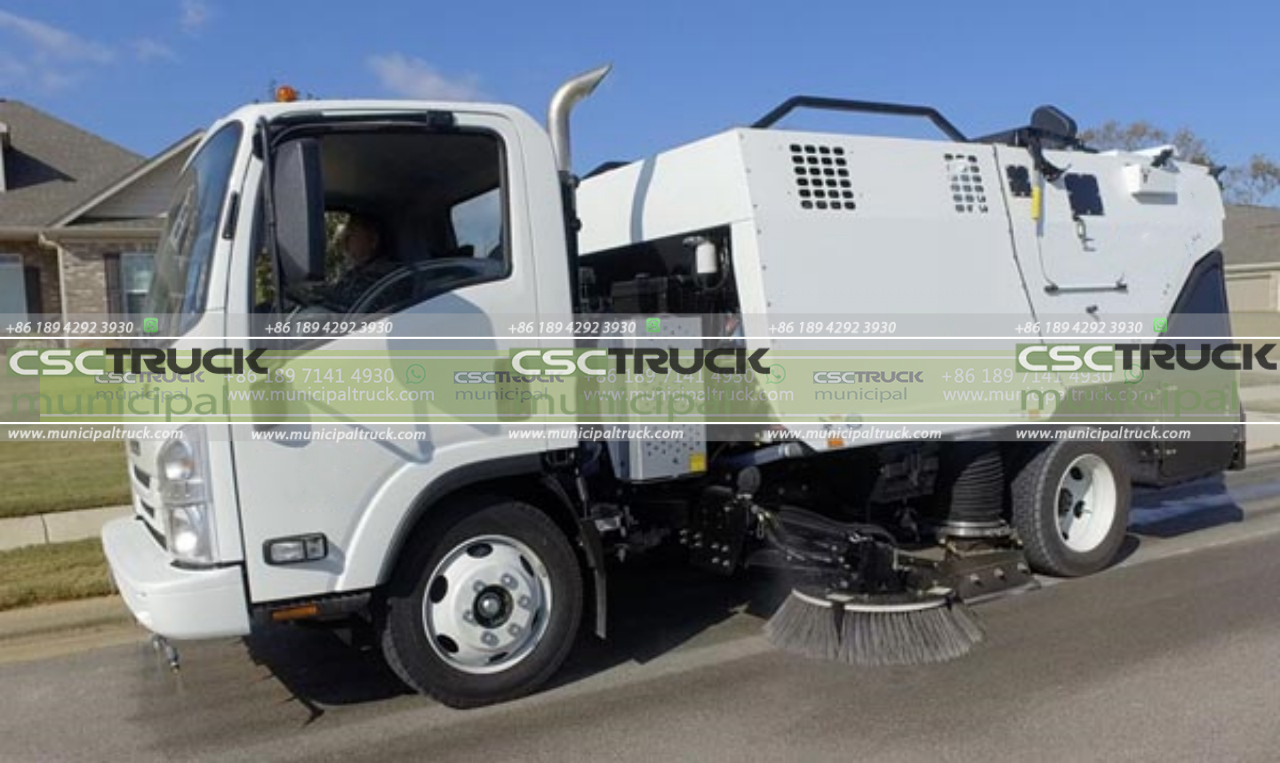 In conclusion, while sweeper trucks are instrumental in maintaining cleanliness and hygiene in urban areas, it is imperative to address their environmental impact. By adopting cleaner fuels, embracing electrification, implementing advanced technologies, prioritizing sustainable waste management, and minimizing noise pollution, the negative effects of sweeper trucks can be significantly reduced. Through collaborative efforts and a commitment to sustainable practices, we can pave the way for a cleaner and greener future in waste management and urban maintenance operations.
In conclusion, while sweeper trucks are instrumental in maintaining cleanliness and hygiene in urban areas, it is imperative to address their environmental impact. By adopting cleaner fuels, embracing electrification, implementing advanced technologies, prioritizing sustainable waste management, and minimizing noise pollution, the negative effects of sweeper trucks can be significantly reduced. Through collaborative efforts and a commitment to sustainable practices, we can pave the way for a cleaner and greener future in waste management and urban maintenance operations.
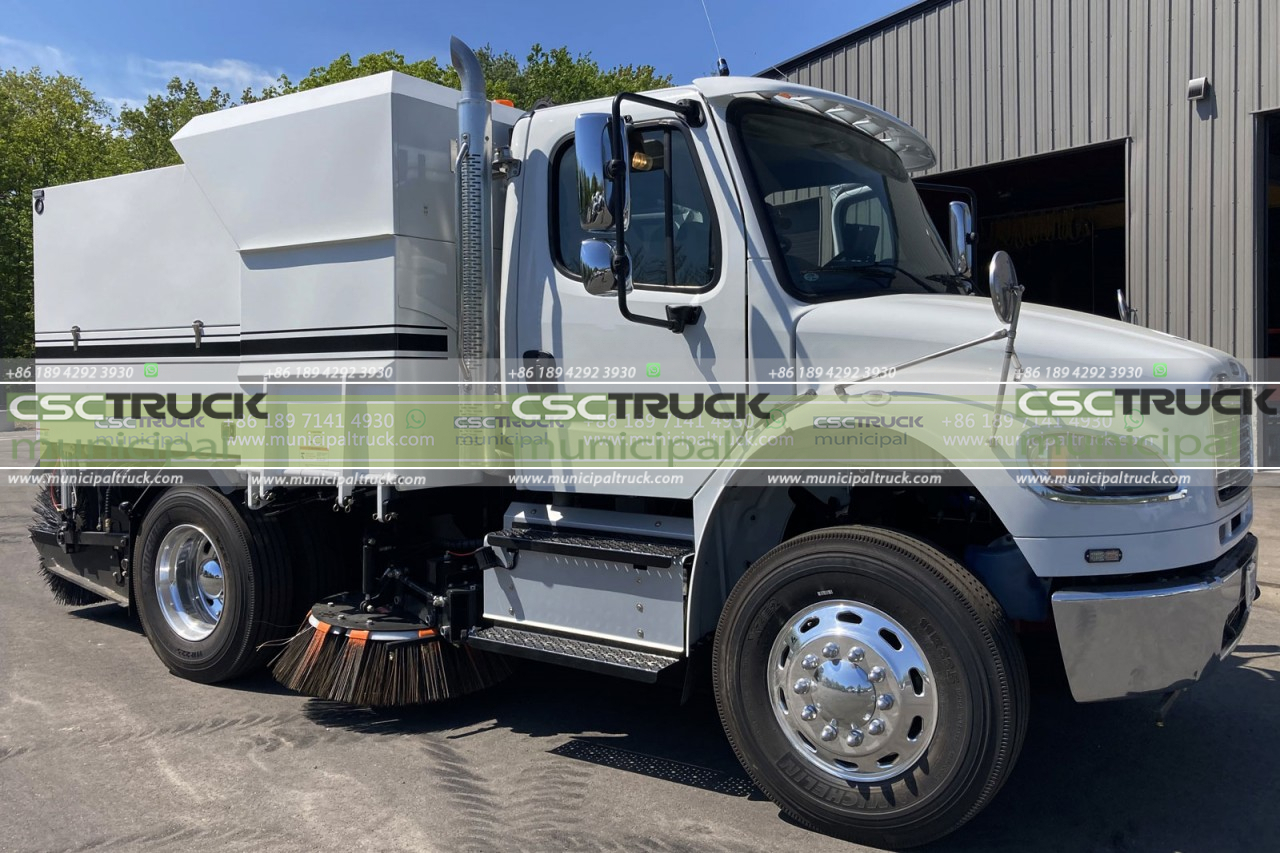 It is crucial for all stakeholders, including manufacturers, policymakers, municipalities, and communities, to come together and prioritize environmental sustainability in the design, operation, and disposal of sweeper trucks. By doing so, we can ensure that our streets remain clean while also protecting and preserving the environment for future generations.
It is crucial for all stakeholders, including manufacturers, policymakers, municipalities, and communities, to come together and prioritize environmental sustainability in the design, operation, and disposal of sweeper trucks. By doing so, we can ensure that our streets remain clean while also protecting and preserving the environment for future generations.
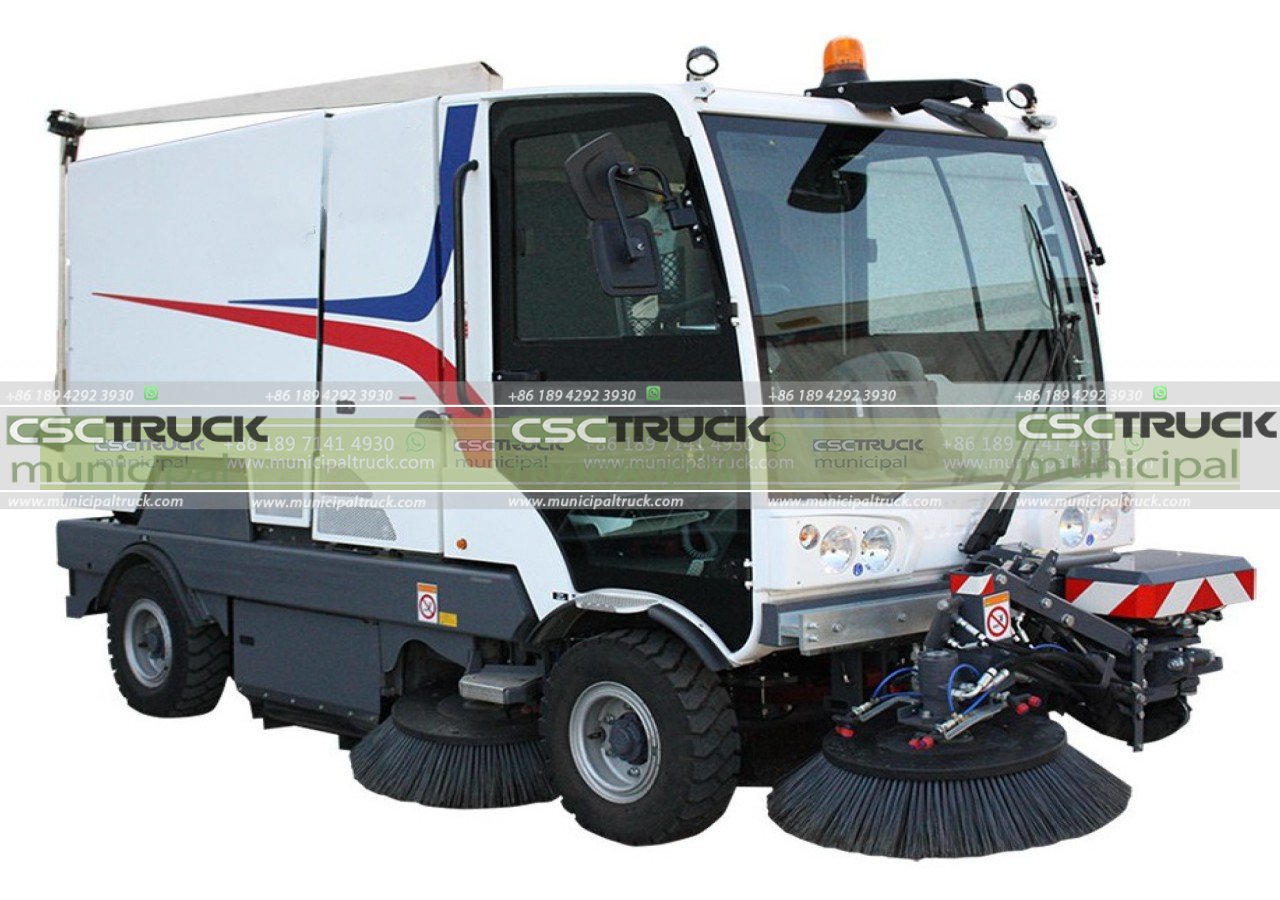
Contact us for this municipal truck or similar trucks: [email protected] Call us or What's APP us: +86 189 4292 3930
